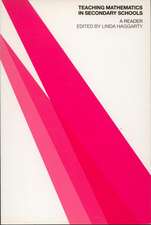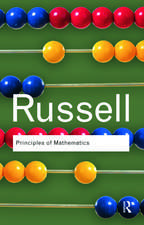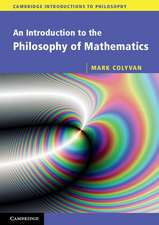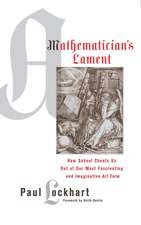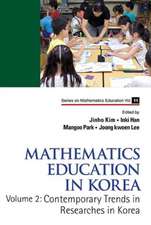Which Way Social Justice in Mathematics Education?: International Perspectives on Mathematics Education
Autor Leone Burtonen Limba Engleză Hardback – 27 feb 2003 – vârsta până la 17 ani
Preț: 464.57 lei
Preț vechi: 639.57 lei
-27% Nou
Puncte Express: 697
Preț estimativ în valută:
88.90€ • 93.24$ • 74.00£
88.90€ • 93.24$ • 74.00£
Carte tipărită la comandă
Livrare economică 01-15 aprilie
Preluare comenzi: 021 569.72.76
Specificații
ISBN-13: 9781567506808
ISBN-10: 1567506801
Pagini: 344
Dimensiuni: 156 x 235 x 30 mm
Greutate: 0.66 kg
Ediția:New.
Editura: Bloomsbury Publishing
Colecția Praeger
Seria International Perspectives on Mathematics Education
Locul publicării:New York, United States
ISBN-10: 1567506801
Pagini: 344
Dimensiuni: 156 x 235 x 30 mm
Greutate: 0.66 kg
Ediția:New.
Editura: Bloomsbury Publishing
Colecția Praeger
Seria International Perspectives on Mathematics Education
Locul publicării:New York, United States
Notă biografică
LEONE BURTON is Professor Emerita of Mathematics Education at the University of Birmingham in the United Kingdom.
Cuprins
About the AuthorsList of Tables and FiguresPreface by Series EditorIntroduction by Leone BurtonSetting the SceneWhat is a Gender-Sensitive Mathematics Classroom? by Helga JungwirthResearch on Equity in Mathematics Education: Progress and New Directions by Laurie E. HartTeaching and Learning Mathematics: Can the Concept of Citizenship Be Reclaimed for Social Justice? by Hilary PoveyMothers Returning to Study Mathematics: The Development of Mathematical Authority through Evolving Relationships with their Children by Christine BrewWhat Does Social Justice Mean in Classrooms?Opportunity to Learn Mathematics Among Aymara-, Quechua-, and Spanish Speaking Rural and Urban, Fourth and Fifth Graders in Puno, Peru by Walter G. Secada, Santiago Cueto, and Fernando AndradeTeachers' Beliefs about Teaching Mathematics to Students from Socially Disadvantaged Backgrounds: Implications for Social Justice by Robyn ZevenbergenGender-Related Differences in Working Style During Cooperative Learning in Secondary School Mathematics: A Malawian Case Study by Panji Catherine ChamdimbaChoosing Maths/Doing Gender: A Look at Why There are More Boys than Girls in Advanced Mathematics Classes in England by Heather MendickConstructing Difference: Assessment in Mathematics Education by Dylan WiliamFirst Results of a Study on Different Mathematical Thinking Styles of German School Children by Rita Borromeo Ferri and Gabriele KaiserMathematics Participation, Achievement and Attitudes: What's New in Australia? by Helen J. Forgasz, Gilah C. Leder and Jan ThomasComputers and Mathematics LearningToys for Boys by Leigh Wood, Dubravka Viskic and Peter PetoczComputers in Mathematics: A Super Highway to Social Justice by Colleen M. Vale
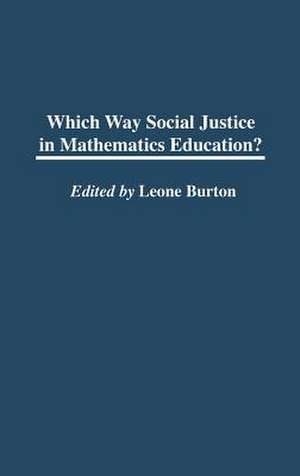






![Maths Frameworking -- Pupil Book 3.1 [Third Edition]](https://i2.books-express.ro/bt/9780007537778/maths-frameworking-pupil-book-3-1-third-edition.jpg)








